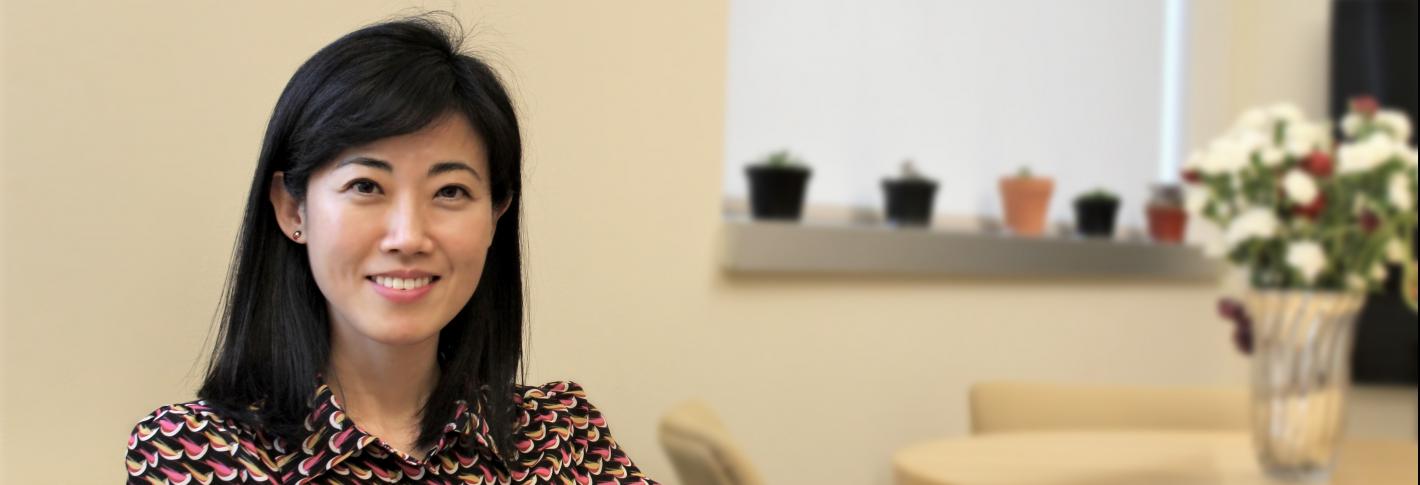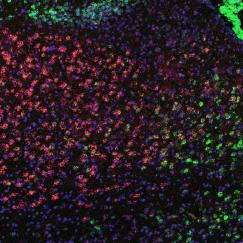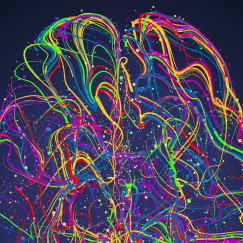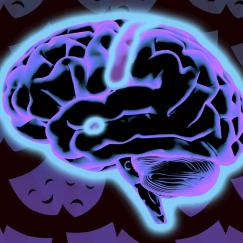The Ho-Am Foundation has selected Gloria Choi, Associate Professor in The Picower Institute for Learning and Memory and the Department of Brain and Cognitive Sciences at MIT, to receive the 2025 Samsung Ho-Am Prize for Medicine.
Choi’s research focuses on neuroimmunology, the study of the bilateral communication between the immune and central nervous systems. While scientists once thought the brain remained walled off from the body’s immune system activity, numerous studies, including from Choi’s lab and that of her frequent collaborator Jun Huh at Harvard Medical School, have shown that there is robust cross-talk with profound effects. For instance, in a series of papers starting in 2016, Choi’s collaboration has produced in mice an explanation for two clinically documented mysteries involving patients with autism spectrum disorders.
One mystery is the observation that infection during pregnancy seems to increase the risk for autism in offspring. Choi’s research showed that amid certain maternal microbiome conditions, infection can spur immune cells to produce an excess of the cytokine IL-17a. When the cytokine reaches the brain of the fetus, it alters development in a specific region of the cortex leading to increased neural activity in circuits affecting social behavior. Another mystery was why certain symptoms appear to improve when some people with autism contract an infection. Choi and Huh’s research showed that in mice modeling autism, either by maternal infection or certain genetic mutations, increased production of IL-17a calmed excessive neural activity in the same region of the cortex.
“[Choi] is a leading neuroscientist who has made groundbreaking contributions to our understanding of neurodevelopmental disorders,” the Korea-based foundation said in an April 2 announcement. “Through research using animal models, she uncovered a critical link between the immune system and brain health. Her findings reveal that, while excessive activation of the immune system during pregnancy can disrupt normal brain development, the immune system can also be harnessed to help alleviate autism symptoms. Dr. Choi's ongoing work to unravel the complex interactions between the nervous and immune systems holds great promise for the development of novel strategies to prevent and treat disorders such as autism, depression, and dementia.”
Choi has also examined neuroimmune effects on social behavior in other ways. In a study in 2021 she demonstrated that male mice, upon detecting an olfactory indicator of illness in female mice, would suppress their instinct to mate: a form of social distancing. In her most recent work, Choi has been mapping immune system cytokine receptors across the whole mouse brain. That information has enabled her to make new discoveries that not only further explain the effects of cytokines on social behavior during development, but also a mechanism by which different cytokines can ether trigger or reduce anxiety. Those results are now in press at a high-impact journal.
Choi said she is grateful for the Ho-Am Foundation’s recognition of and support for her work.
“I am deeply honored to receive the Ho-Am Prize,” Choi said. “This recognition not only affirms the importance of exploring the dialogue between the immune and nervous systems but also encourages our continued efforts to better understand and ultimately treat complex brain disorders. I am grateful to the Ho-Am Foundation for supporting this line of research.”






